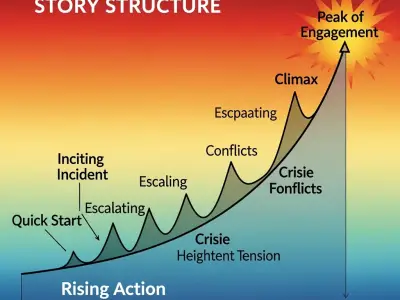Music therapy for dementia has garnered widespread recognition for its ability to unlock memories, evoke emotions, and enhance overall well-being. In this article, we’ll explore how melodies have the potential to transform lives, improve cognitive function, and foster meaningful connections for those who are navigating the intricate journey of dementia.

Understanding Dementia
Dementia is a complex neurological condition that’s characterised by a decline in cognitive abilities, including memory, thinking, and reasoning skills. It’s not a specific disease, but is a term that encompasses various disorders that affect the brain. The most common form of dementia is Alzheimer's disease, but other types include vascular dementia and Lewy body dementia.
Those living with dementia often experience symptoms including memory loss, confusion, difficulty with communication, changes in mood and behaviour, and challenges when carrying out daily activities. While medications can play a role in managing certain aspects of dementia, non-pharmacological interventions - such as Music Therapy - have a vital role to play as well.
Benefits of Music Therapy for Dementia
Music therapy has been shown to have a transformative impact, providing numerous benefits such as:
Improved Mood and Emotional Well-being
Music has a profound ability to elicit emotions and evoke positive feelings. Through carefully selected music, music therapy can uplift mood, boost emotional well-being, and bring joy and comfort to individuals with dementia. It has the power to create a sense of familiarity, evoke cherished memories, and spark moments of happiness.
Enhanced Cognitive Function and Memory Recall
One of the remarkable effects of music therapy is its ability to stimulate cognitive function and memory recall. Even in individuals with advanced dementia, certain types of music can unlock memories and facilitate a connection to past experiences. Engaging in music therapy can stimulate various areas of the brain, potentially improving cognitive abilities and promoting mental stimulation.
Reduced Anxiety, Agitation, and Behavioural Issues
Dementia often brings about anxiety, agitation, and behavioural challenges. Music therapy provides a soothing and calming influence, helping to alleviate these symptoms. The rhythmic patterns, melodies, and harmonies in music can promote relaxation, reduce restlessness, and minimise disruptive behaviours. It creates a safe and comforting space, offering individuals with dementia a sense of tranquillity and emotional stability.
Increased Social Engagement and Communication
Music therapy encourages social engagement and communication amongst individuals with dementia. Group music therapy sessions or shared musical experiences can foster a sense of belonging and connectedness. Music can serve as a common language that transcends the barriers that are imposed by dementia, allowing for meaningful interactions and shared experiences. Communal singing, playing instruments, or engaging in rhythmic activities can facilitate social bonds and enhance interpersonal connections.

Techniques for Implementing Music Therapy for Dementia
Music therapy for dementia encompasses a variety of approaches and techniques that can be tailored to the unique needs and preferences of individuals.
Personalised Playlists and Familiar Music
Creating personalised playlists based on an individual's musical preferences and past experiences is a powerful tool in music therapy. By selecting familiar songs and melodies that hold personal meaning, music therapists can evoke memories, stimulate emotions, and establish a sense of connection. Listening to favourite songs or albums can bring comfort and joy, providing a soothing and therapeutic experience for the individual.
Group Music Therapy Sessions
Group music therapy sessions offer opportunities for individuals with dementia to engage in musical activities together. These sessions may involve singing, playing instruments, or participating in rhythmic exercises as a collective experience. Group interactions foster a sense of community, encourage social engagement, and create a supportive environment where participants can share their love for music and connect with others.
Live Music Performances and Sing-alongs
Live music performances and sing-alongs can be highly engaging and uplifting for individuals with dementia. Professional musicians or music therapists may perform live music, allowing participants to immerse themselves in the live experience. Sing-alongs enable active participation, empowering individuals to join in and express themselves through familiar melodies and lyrics. These interactive sessions promote a sense of joy, involvement, and connection.
Musical Improvisation and Creation
Musical improvisation and creation provide a creative outlet for individuals with dementia. Through spontaneous musical expressions, such as improvising melodies or creating rhythms, individuals can engage in the process of self-expression and explore their own musical abilities. Music therapists facilitate this process, encouraging individuals to freely express themselves through music, regardless of technical skill. This form of musical engagement promotes self-confidence, autonomy, and a sense of accomplishment.

Our Music Therapy Diploma Course is designed to provide you with the introductory skills and knowledge that you’ll need to begin exploring a career in music therapy, and is also invaluable if you’re considering whether to see a music therapist yourself.
Additionally, we also offer a Dementia Awareness Diploma Course. This comprehensive program provides a deep understanding of the condition itself, and can help you to better support individuals with dementia in various settings. Both courses are available now for just £29 each (save £98 per course!).
By combining the Music Therapy and the Dementia Awareness courses, you'll gain a holistic understanding of dementia care and enhance your ability to utilise music therapy as a powerful tool in improving the lives of individuals living with dementia.




